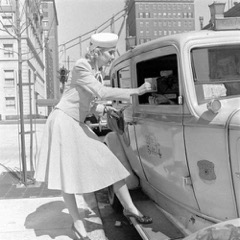Lane Sanders and The Modern Past
In all my research about the 1930s, I’ve felt that the era was more modern than we typically give it credit for. I wanted to span across the decades to give us a feel for the era, but also help us to realize that those people were not so different from us.
In essence, I wanted my protagonist Lane Sanders, to be a modern woman. She was raised by her Aunt Evelyn since age ten. Because Evelyn grew up in Europe and was an artist with friends in all places high and low, I tried to imagine how her parenting would affect Lane. Lane would become someone raised with the attitude, inspiration, and gumption of the Gertrude Steins and the Dorothy Parkers of the world. With perhaps a disdain for social barriers and certainly for Prohibition.
The dominant male figure in her life, is Mr. Kirkland, Aunt Evelyn’s close friend who is a kind of make shift housekeeper and butler. But who was also spy with her parents. So I had to ask myself how Mr. Kirkland’s role would mold and develop Lane. I credit him, as does Lane, for her use of more colorful language than perhaps the typical 1930s woman. But then again, New York City was not a typical place either. My great aunts were working women in the 1930s, and they were much more prim and proper than Lane. But truly, the outskirts of Detroit were not New York City. So I also had to ask myself, how did the city mold and develop Lane, too? I myself have lived in New York City coming up on eighteen years. If I’d had my formative years here, how would that change me? How would it invest in Lane?
So I looked at how the city did in fact change me, and I looked at my teenage sons who were born and raised New Yorkers. For me, New York has made me love being a constant learner and a lover of spontaneity. It’s made me enjoy everyday life versus living for vacations. And to expect the unexpected moments of wonder, beauty and joy around any corner. It’s also made me tougher. I can sometimes be a people pleaser. Well, at least eighteen years ago I was. Now I’m too tired. Truly. In a good way. I learned I can never have the capacity to please everyone, it’s impossible and futile. When you live in New York, you come to realize very quickly that you only have a limited amount of energy and quite frankly, people pleasing ranks very low on the survival scale. For my boys, they learned at an early age how to navigate the city and the social aspects. They learned how to go out to lunch with friends ON THEIR OWN in the fifth grade. By middle school –sixth grade—they learned how to navigate public transportation ON THEIR OWN. There is a sense of savvy independence that didn’t hit me and my friends until after we had not only gotten our driver’s license, but a car! My boys learned safety measures early on, not to create fear, but to dispel it. They had access to art and culture without even trying. For instance, on my way to high school, the major landmark every morning was the Burger King. For my sons, they pass Central Park, Lincoln Center and Columbus Circle. Every single day. Lane was raised in that kind of world.
Mystery Scene Magazine said of The Gold Pawn, “…Chandlar has found a way to blend accurate historical facts with a more contemporary mindset…Readers will eagerly await the next book.” I believe that the more modern mindset of the Art Deco Series is from all of these aspects that come together to create Lane. And I also believe, in their day, they weremodern. We tend to think of the past as lesser. Less intelligent or hip. Less savvy. But in their day, they were tops. They were more edgy than the past generations. More progressive, more intellectual. That’s why I bring the readers Lane as she is. Because the past is more present than you think.


